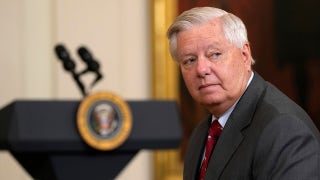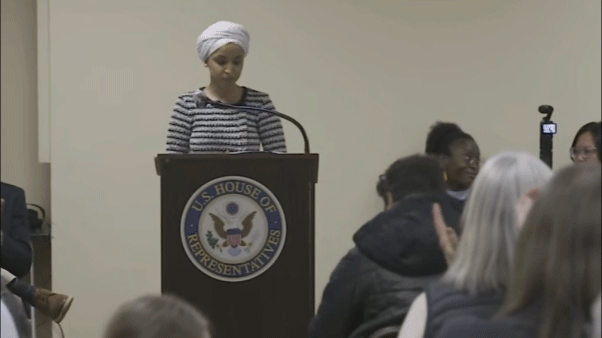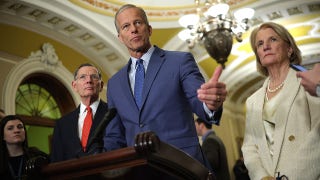President Trump on Wednesday announced that the U.S. intends to “snapback” sanctions on Iran, days after the U.N. Security Council failed to extend a soon-to expire arms embargo on Iran.
“Today I am directing Secretary of State Mike Pompeo to notify the U.N. Security Council that the United States intends to restore virtually all the previously suspended United Nations sanctions on Iran," the president said in a news conference with reporters. “It’s a snapback.”
The snapback mechanism was included as part of the 2015 Iran nuclear deal -- known as the Joint Comprehensive Plan of Action (JCPoA) -- and allows an individual participant of the deal to restore all U.N. sanctions on Tehran should it deem it to be in violation of the deal.
The U.S. left the Obama-era deal in 2018, but claims to reserve rights as a participating member under U.N. Security Council Resolution 2231, which codified the deal. Trump has been a furious critic of the deal, and pointed his finger at both President Barack Obama and former Vice President Joe Biden.
"This deal funneled tens of billions of dollars to Iran, $150 billion to be exact plus $1.8 billion in cash, which I don't know the president had the authority to give….just another great deal that turned out to be a total disaster that would have funded all the chas and bloodshed in the region and the world," he said.
It comes after the Council on Friday rejected a U.S. resolution to extend a thirteen-year-old arms embargo on Iran that was due to expire in October as part of the nuclear deal. The expiration of that embargo would allow Iran to buy fighter jets, attack helicopters, tanks, submarines and missiles with a range of up to 300 km. The U.S. has warned it could result in Iran selling arms to countries like Venezuela and Syria.
But while other countries, including allies like U.S., Germany and France, were not supportive of Iran gaining access to arms, there are fears among diplomats that a "snapback" could lead to Iran walking away from the deal altogether and ramping up its aims of gaining a nuclear weapon.
UN SECURITY COUNCIL REJECTS US RESOLUTION TO EXTEND IRAN ARMS EMBARGO
Invoking snapback will also trigger a battle at the U.N. over whether the U.S. can move forward with the process.
“Having withdrawn from the JCPoA, the U.S. is no longer a JCPoA participant and therefore ineligible to demand the Security Council invoke a snapback,” Chinese Ambassador Zhang Jun said in a statement on Friday.
The U.S. has 30 days to pass a resolution to stop snapback from happening. While Russia, China and other members of the JCPoA are clamoring to look for ways to halt snapback it would seem they are fighting a losing battle.
"We can expect China and Russia to play all kinds of games but in the end, if a resolution to stop the U.S. snapback doesn't pass in 30 days, America wins," Richard Goldberg a senior advisor at the Foundation for Defense of Democracies think tank in Washington D.C., told Fox News.
Goldberg said that there was little doubt that the U.S. has the ability to get snapback done.
"Everyone from Barack Obama to Joe Biden to [former Secretary of State] John Kerry told the American people we could snapback at any time even if every other country opposed it. They were correct," he said. "Other countries may challenge that fact for their own political agendas but unless they're willing to blow up the Security Council, the United States as a permanent member has the procedural power to force the snapback through."
Pompeo is scheduled to visit the U.N. on Thursday and meet with Secretary General Antonio Guterres and notify the Security Council of the U.S. intentions.
The move to trigger snapback will infuriate many Democrats, who saw the deal as a significant diplomatic achievement of the Obama administration. Kerry, in a speech to the Democratic National Convention on Tuesday that that the Obama administration's efforts "eliminated the threat of Iran with a nuclear weapon."
But it will delight a number of Iran hawks in the Republican Party, who have long sought to ramp up pressure on Tehran.
CLICK HERE TO GET THE FOX NEWS APP
Sen. Ted Cruz, R-Texas, in an op-ed earlier this week said it was time for the U.S. to "finally and irreversibly end what remains of the disastrous deal and the benefits that Iran gets from it by invoking the snapback mechanism described in the deal's United Nations resolution."













































